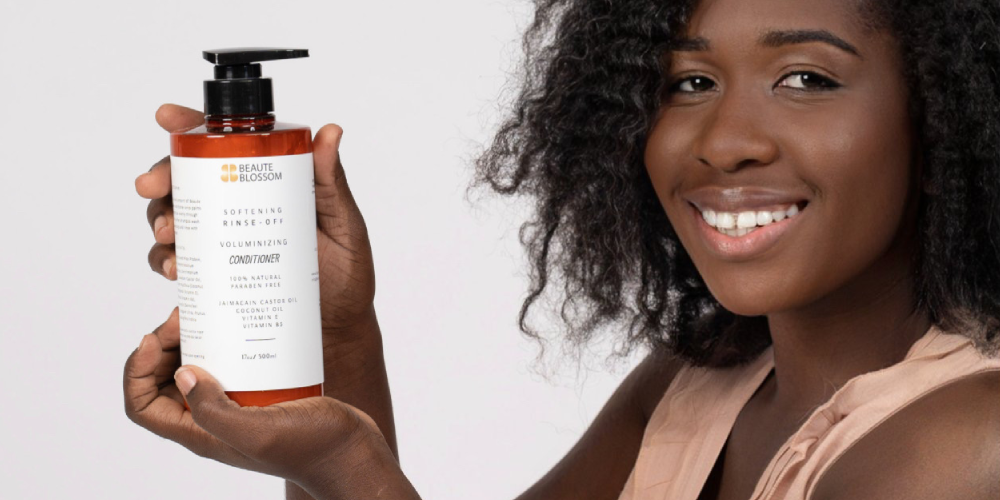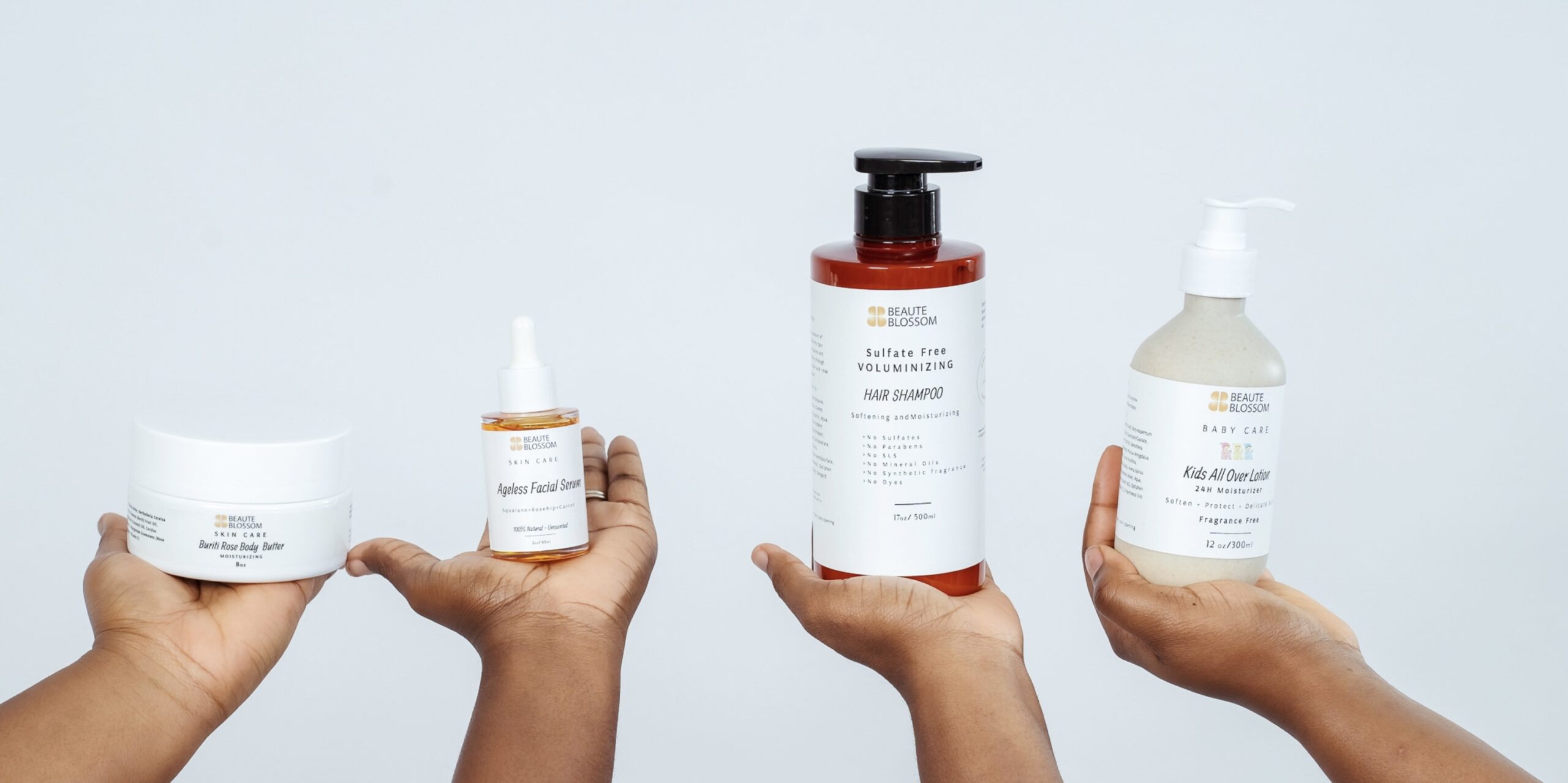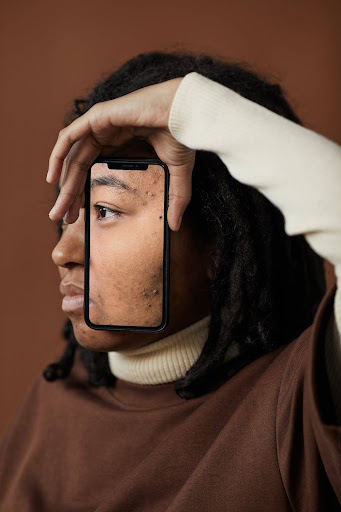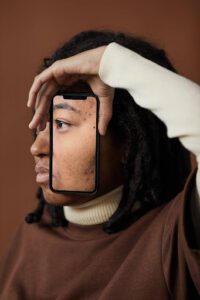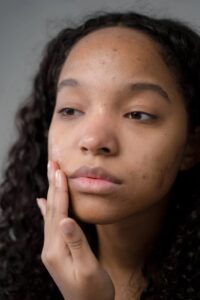What is Deep Conditioner?
-
Hair Conditioner is a cosmetic product, most commonly applied to the hair after shampooing to improve its condition. shampoos are mainly designed to clean the hair; conditioners are formulated to nourish and condition the hair. after treatment with a conditioner, the hair should be smooth, shiny and tangle-free. Conditioned hair is easier to comb, has less static electricity and fly-aways, and feels softer overall. Conditioners can also vastly improve the dry and rough texture of chemically damaged hair (permanently waved and/or dyed).
How Conditioner Functions
-
Conditioner accomplishes these tasks through two main mechanisms. the first one is closing cuticle cells with appropriate pH. as we mentioned, the hair shaft requires an acidic ph for the cuticle cells to be nicely laid down protecting the cortex. if a conditioner has an alkaline ph (also known as a basic ph, ie above 7), the cuticle would remain open and thus expose layers underneath to environmental factors and damage. ideal conditioner ph is in the acidic range, below ph 6.0, usually around 5.0.
-
The second mechanism is so-called substantivity. Conditioners contain cationic (positively charged) ingredients (cationic surfactants and cationic polymers) that adsorb to the surface of the hair shaft – this is called substantivity. notice we used word adsorb? this is used when a substance only sticks to the surface of the hair. on the other hand, if the ingredient penetrates into the hair fiber, it is said that it gets absorbed into the hair.
Product Build-u p
-
This is the term used to describe lifeless hair that is weighed down and can even feel sticky or gummy. this happens mainly due to excessive use of conditioners, for example using intense conditioners every day would result in build-up. since conditioners contain substantive ingredients, they can overly stick to the hair and weigh them down. another reason for build-up are minerals present in hard water, mainly calcium. they can deposit on hair and make it look dull. to combat this, shampoos include chelating agents that bind calcium ions and prevent them from depositing on the hair.
Type of Conditioners
In this Vol.3 blog, we will be diving more into Deep Conditioners. I will talk about the others in my future blogs
Differences between Deep Conditioner and Regular Conditioners
-
Regular conditioners moisturise the surface of your hair – they have some penetration capabilities but they mainly smooth the outer cuticle layer, coating the hair strand to soften and reduce frizz. Many will include a cationic surfactant which helps to bind the conditioner to your hair shaft so that it’s visibly more manageable and easier to comb through. This is why they’re often great detanglers. Conditioners do contain oil, but they’re kept to only around 10% of the formulation so that it’s still runny enough to use in a squeeze or pump bottle.
-
Deep Conditioners are meant to do all of the above, repair & nourish. Oils, butters, proteins and other moisturising agents have different absorption rates with some taking up to 30 minutes. Most conditioners have already moved out of your hair’s temporary lodging and are but a distant memory by then! Deep conditioners are designed with the intention of taking full advantage of your hair’s absorption ability. This is why the results of deep conditioners are usually incomparable to that of a basic conditioner.
So Why should I use Deep Conditioner?
-
It prevents damage to the hair’s inner structure and also controls the amount of water, maintaining your hair’s hydration. The cortex houses the protein that gives your hair its strength; it also determines the colour and texture of your hair. Finally, the medulla at the centre is present in thicker, textured hair and is more common in afro or darker coloured hair. Deep conditioners contain ingredients that can penetrate the cuticle and even into the cortex – making them one of the few exceptionally effective hair treatments.
-
Remember that the more damaged the hair, the stronger the negative charge is. This means that cationic ingredients will adhere to damaged hair more than they will to undamaged hair. This is the reason Deep Conditioners, which contain larger percentages of cationic ingredients, are aimed at damaged hair – when used on undamaged hair, a great deal of the cationic conditioning ingredients simply get washed away.
How to use Deep Conditioner
-
Use Bi-weekly or once a month. Deep conditioner can be used in different ways. most often it is applied to the hair after washing, left on the hair for 10 to 30 minutes, and then rinsed off with water. to make conditioning effects deeper, hair with intensive conditioner applied on can be wrapped in plastic wrap or covered with shower cap and lightly heated using a blow dryer. Heat will help ingredients penetrate into hair shaft and offer more conditioning properties. after gentle heating treatment, the conditioner is rinsed off with water. another way to use intensive conditioner is to apply it to dry hair before washing, as a pre-wash treatment. Hair can be left with the conditioner on for 10 to 30 minutes (feel free to put hair in a plastic wrap during this time), then the conditioner is rinsed off with water and hair is washed with a shampoo and treated with a regular conditioner as per usual.
What is Our MAIN Ingredients?
FENUGREEK:
-
This kitchen ingredient is an age-old remedy for when your hair is losing volume. While it stimulates blood flow to the scalp, it also nourishes the hair follicles to promote faster and healthier new growth. Not only that, but it also acts as a great alternative to store-bought conditioner. The mucilage content replenishes the hair and provides smoothness allowing us to detangle our hair easily post every wash. This also helps restore luster.
-
In addition, fenugreek has antioxidant and anti-inflammatory properties that help with dandruff, scalp irritation and acne. And, if you are losing hair due to menopause, we highly recommend fenugreek since it is high in estrogen and thus will help prevent hair from thinning.
MORINGA:
-
Moringa contains both Vitamins A and B that nourish the hair and promote growth. Moringa contains high contents of vitamin A, thus supporting hair growth. Vitamin A plays a very vital role in the development of healthy cells and tissues in the body and in reducing hair loss. Vitamin A deficiency causes thickening of the scalp, dry hair and dandruff. Meaning using Moringa helps moisturize your hair and keeps off dandruff. Vitamin A also stimulates the production of sebum from the sebaceous glands. Sebum moisturizes the scalp and helps keep the hair healthy.
-
Vitamin B aids in creating red blood cells which carry oxygen and nutrients to the scalp and hair follicles. Proper blood circulation in the scalp allows the hair follicles to grow strong and healthy. Hair loss can also occur if you have a vitamin B deficiency especially Vitamin B6, inositol, biotin, and folic acid.
Find this in our shop by clicking this link
Posted by Lin
